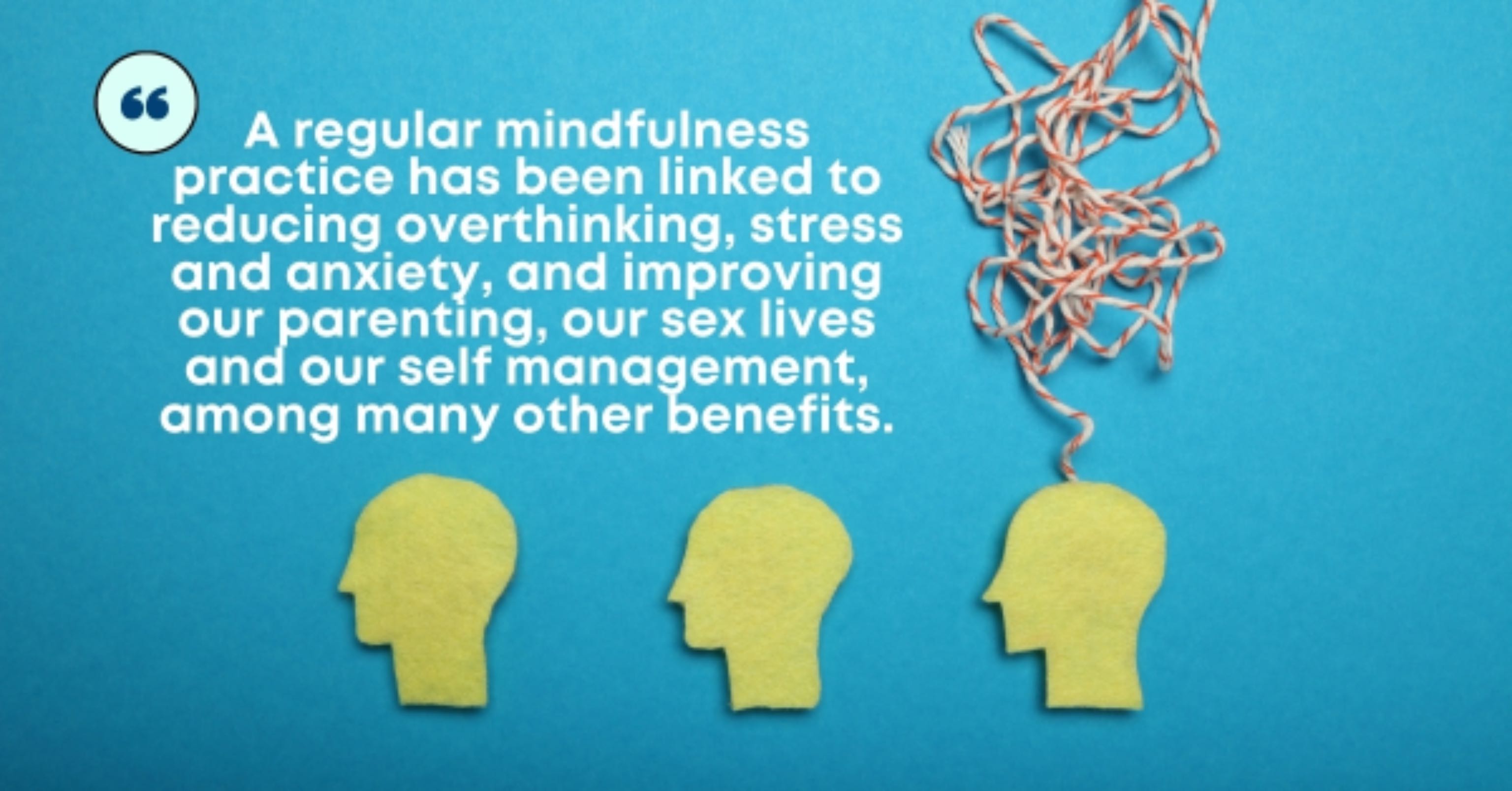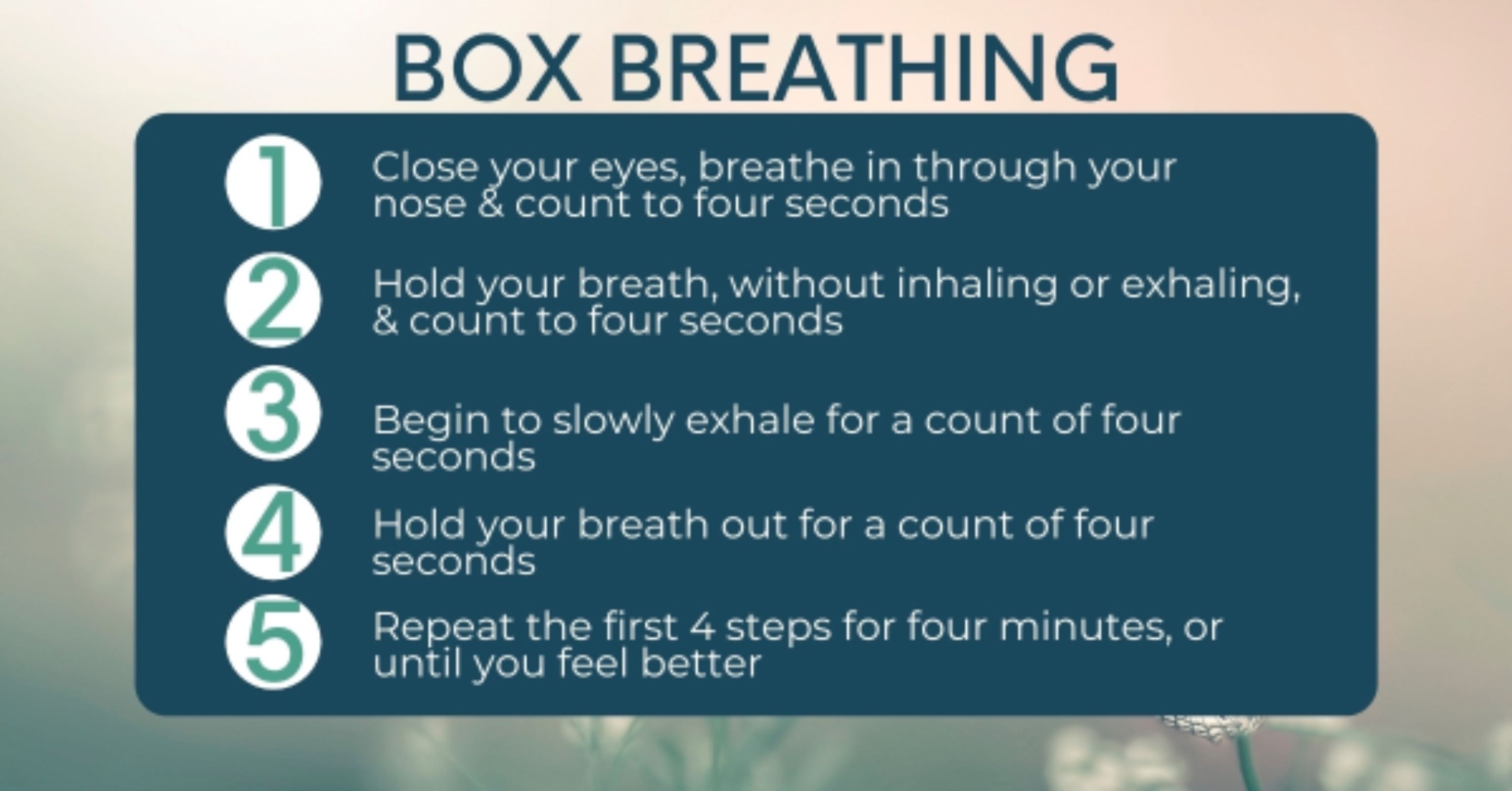Reviewed By Cara Collins - Registered Member MBACP Adv. Dip.
What Is Mindfulness?
10 March 2021
When it comes to wellness and feeling better in our minds, there are a few healthy habits we can adopt in everyday life which can make a big difference to how we feel.
Mindfulness, which is the practice of being more aware of yourself and what’s going on around you, is a great way of inviting your attention into the moment. But the best part? It’s easy to do and effective in calming the mind.
What is mindfulness?
As we’re increasingly distracted by digital screens and busy lives, we’re rarely connected to the moment – and when we say “the moment” we mean the right now. No overthinking, no mindless distractions (hello social media scrolling!) and no looking two hours into the future or worrying about next week. The right now is where we can feel centred and connected to the activity in front of us – and mindfulness is an excellent way to do just that.
What does mindfulness really do?
Mindfulness has been getting a lot of attention lately – and rightly so. A regular mindfulness practice has been linked to reducing overthinking, stress and anxiety, and improving our parenting, our sex lives and our self management, among many other benefits.

Mindfulness can also help us:
- Cope with difficult feelings
- Reduce emotional reactivity
- Be kinder to ourselves
- Develop deeper compassion
- Reduce stress, depression and anxiety
- Improve satisfaction in our relationships
- Stop negative self-talk
Research into the effects of mindfulness on anxiety and anxiety-related disorders found that symptoms improved by 60% after six to nine months of regular mindfulness-based practice, such as meditation.
According to the NHS website, becoming aware of the present moment can help us enjoy life more while understanding ourselves, our thoughts and our feelings better.
Mindfulness helps create space between our thoughts and how we react to them. It helps us manage uncomfortable feelings, such as anxiety or stress, as soon as they arrive.
How can I start living mindfully?
A good place to start is knowing that mindfulness is largely self-directed as something you can do by yourself. Thanks to the boom in mindfulness, there are a wide range of apps to help you on your path to a life lived mindfully. Apps, such as Calm and Headspace, offer guided mindfulness-based activities to help you feel fully present and engaged in the moment.
Breathe your way to mindfulness
You can practice mindfulness through an awareness-based approach called breathwork, which involves intentionally focusing on your breathing pattern using various exercises. Many people find that breathwork can bring on a deep sense of relaxation, while clearing the mind and reducing anxiety.
Box Breathing – or Square Breathing – is a simple breathing technique you can do anywhere and at any time. Box Breathing is where you consciously change your breathing and sync your breath with your thoughts. It’s also known as a reset for bringing your breathing back to a normal rhythm, which is excellent in moments of stress.

Box Breathing in steps:
- Close your eyes and breathe in through your nose while counting in your head to four seconds
- Hold your breath, without inhaling or exhaling, and count to four seconds
- Begin to slowly exhale for a count of four seconds
- Hold your breath out for a count of four seconds
- Repeat the first four steps for four minutes, or until you feel better
Find time for colour
Colouring has many therapeutic benefits, including relaxing the fear centre of our brains (the amygdala) and inducing a state of relaxation. Research has found that colouring can still a restless mind and reduce anxiety levels, particularly when colouring mandalas, which are ornate, symmetrical geometric shapes.
Colouring is a great way to combat anxiety and embrace mindfulness. Download our free colouring templates and give your mind some much-needed rest.
Eat mindfully
Mindful eating is simply an approach to consuming food. The easiest way to understand ‘mindful eating’ is to think about its opposite – mindless eating. If you tend to eat on the go, watch TV while having your dinner or if you spend meal times worrying about the kids and getting your toddler to eat, then you may be eating more mindlessly than you realised.
But why does mindful eating matter?
When you eat with distractions, whether that’s grabbing a snack when you’re bored or staring at your phone, eating mindlessly can make us feel detached from our food. As a result, we tend to eat when we’re not hungry or miss our body’s signals to tell us when we’re full.
To put some mindfulness back into eating, try bringing this technique to your next meal:

Eating mindfully creates space to pay attention to our food, moment by moment. When we focus our attention on the sensual experience of our food, we can enrich our eating. Other benefits include getting more enjoyment out of eating, reducing stress and increasing feelings of gratitude.
Have you got a tried & tested mindfulness tip? We’d love to share your story of how mindfulness has helped you.
Get Inspired Further
breathwork for relaxation
Catherine Wells, Occupational Therapist, show us how to use your breath to initiate a relaxation response in the body.
Meditation 6 Barriers for Newbies
Knowing the hurdles you might face as a beginner can really help. Plus we've a bonus, easy-peasy meditation for you to try that won't take up any of your time.
Gratitude - Three Good Things
Can you find something to be grateful for even on the grey days? While taking this video, I was grateful for seeing flying ducks, hearing the crashing waves, and how you can hardly tell where the sky stops and the sea starts.



